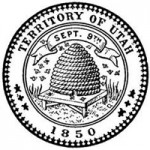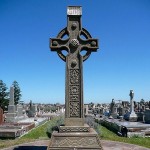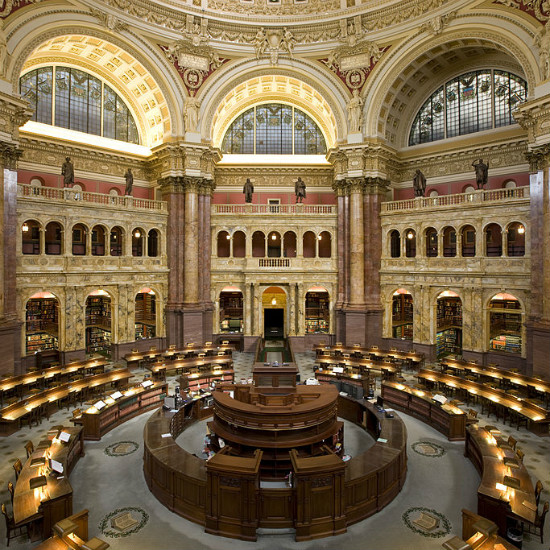Editors’ Note: This article is part of the Patheos Public Square on Politics in the Pulpit. Read other perspectives here.
On a warm summer evening in 1833, the good citizens of Jackson County, Missouri, gathered in a town meeting to determine by democratic deliberation how to handle the Mormon problem. Subsequently, these good citizens tarred and feathered the local Mormon bishop in broad daylight in the town square, burned the Mormons’ printing shop, and drove every last Mormon from the county by violent force. On August 10, the local Missouri Intelligencer newspaper published the minutes of that meeting, during which these good citizens of this democratic republic resolved the following (and I quote):
- That no Mormon shall in future move and settle in this county.
- That those now here… shall be allowed to remain unmolested until they have sufficient time to sell their property.
- That the editor of the “Star” [a Mormon newspaper] be required to close his office… all other stores and shops belonging to the sect… must in every case strictly comply with the terms of the second article of this declaration, and upon failure, prompt and efficient measures will be taken to close the same.
- That the Mormon leaders here… counsel and advise their brethren here to comply with the above requisition.
- That those who fail to comply with the above requisitions, be referred to those of their brethren who have the gift of divination… to inform them of the lot that awaits them.
Mormons still speak in hushed tones about Missouri, where, in the 1830’s, America’s promise of religious freedom—not to mention its guarantees of equal protection, due process, free speech, private property, and what the great American epigrapher Stan Freberg called the purfoot of happineff—hid itself in a hole for fear of being lynched.
But this reading of history ignores that, in 1833, the two thousand far-flung, mind-their-own-business residents of Jackson County found themselves besieged by over one thousand Mormons, materializing, as it seemed, suddenly, out of nowhere, a deliberately alien and growing population voicing a claim to the place as a homeland given them by god. In a frontier region that had been operating ad hoc, the new population’s cohesive organization, political unity, economic insularity, and social impenetrability gave it the power to control the county, so that it could, indeed, transform the area to suit its own interests, in open disregard of outsiders’ equally earnest interests in property and happineff.*
In a country with a constitution and a bill of rights, it seems nigh impossible to justify stripping a man in a town square, spreading hot tar on him, and then dumping feathers on him. I can think of only three or four people who deserve that kind of treatment. But the Missouri Mormons must accept some responsibility for the hostility that followed them around.
In Missouri, lo, these many decades ago, people who affiliated themselves with the LDS church made a practice of voting in coordinated blocs, often under direction from church leaders. The threat of Mormon abolitionism in Missouri was exaggerated, but was taken seriously, nonetheless, by cantankerous Missourians who wanted to keep their slaves and saw that the Mormons’ coordinated voting could undermine the peculiar institution. In any case, at this time, Mormons were a communal order, and the way that the Mormons pooled their money in order to purchase land confirmed other Missourians’ fears that a Mormon takeover of the county was inevitable.
A decade after Jackson County, part of what made Joseph Smith unpopular in Illinois was the way he personally, unpredictably, infuriatingly, manipulated state-wide politics through what had become several thousand voting followers. Smith, for example, in 1843, promised support to a Whig candidate for congress in exchange for legal assistance, but, citing revelation to his brother Hyrum, directed his followers in Illinois’ sixth district to vote for a Democrat, instead. The Mormon vote for the Democrat proved decisive. The frustrated Whigs subsequently started meeting to determine what to do about the Mormon problem. Late in 1843, they began meeting in Carthage, Illinois, where Smith was murdered the next year.
Smith and the Mormons were, for the most part, simply availing themselves of democratic processes in order to secure their safety and prosperity—heaven knows no one else was going to secure the Mormons’ safety and prosperity.
But the Mormon appropriation of government—even by perfectly democratic means—marked out regions of privilege inside a country that purported to offer equality to all. The use of economic communalism to claim a Mormon county in Missouri, and then electioneering to stake out a Mormon city in Illinois, and then colonizing an enormous region of the Rocky Mountains to make a place that provided unique, and in some ways exclusive, security to Mormons apart from everyone else, abused democracy’s trust.
The Mormon appropriation of democracy in the nineteenth century justified the complaints of non-Mormons that Brigham Young’s mountain kingdom operated as a theocracy, rather than as a democratically constituted, U.S. territorial government. In a region in which federal courts often deferred, formally, to the judgment of Mormon bishops, non-Mormons did not feel they had equal or fair access to the guarantees the Constitution was supposed to offer all U.S. citizens.
Brigham’s deliberate efforts to exclude non-Mormons from public life in Utah extended beyond the courts and politics to the economy. When he finally conceded that he could not prevent Mormons from surrendering cash—which he regarded as a communal resource—to outsiders by patronizing the retail outlets of non-Mormons in Utah, Brigham built an LDS competitor to Utah’s gentile retail industry in the form of Zion’s Cooperative Mercantile Institution. Wielding rather fierce religious rhetoric, Brigham manipulated Mormon merchants into surrendering their stock to the church’s own, cooperative venture, and then threatened Mormons with excommunication for patronizing anything but authorized ZCMI outlets.** Non-Mormon retailers in Utah were strangled.
Still, today, we hear reiterations of what Brigham effectively said to the non-Mormons in Utah whom he deliberately marginalized: if you don’t like the perfectly democratic domination of the majority to which you do not belong, you can always move somewhere else. The non-Mormon Utahns’ response was, and still is: “Somewhere else? Like where? Mexico? Utah is part of the United States. I should be able to claim my constitutionally protected rights, right here.”
Religion does not poison everything, but it can be the enemy of democracy’s egalitarian ideal. When discrete sects—and, here, Evangelicalism, Catholicism, Baptistism, etc., are sects every bit as much as Mormonism—seek to make local or national government serve them in a way that privileges them and marginalizes others, those sects abuse the public trust, whether or not they are acting within the letter of democratic law. The real enemy of democracy is not religion, per se, but, instead, the kind of selfish, elitist, privileged tribalism that religion too often cultivates.
Of course, this is Amurrica. Surely religious institutions must be as free as any individuals to contribute whatever they want to public discourse. But what is legal and what is appropriate may not coincide. An institution’s citation of legality to justify its claim on privileges for a population that coheres only around religious beliefs, or, perhaps worse, to mobilize its population to limit another population’s access to Amurrica’s promised freedom, smacks, distinctly, of the bigotry that Amurrica aspires to overcome.
Some years ago, the bishop of my own Mormon congregation in Memphis told us all from the pulpit during church to turn out for imminent midterm polls to vote in favor of an amendment of Tennessee’s constitution that would ban same-sex marriage. I hadn’t planned to vote in a midterm election that I didn’t see as consequential (being convinced that an anti-same-sex-marriage initiative that was a foregone conclusion in Tennessee was only a ploy to bring out voters in favor of mediocre candidates). But because I am a faithful Mormon, this official, ecclesiastical order to vote to make same-sex marriage illegal in my state meant that that week I had to rearrange my schedule, take time away from work, drive across town, and stand in line so I could cast a ballot.
It was rather a pain, but worth it, in the end, when I could report to my bishop that, by voting in favor of same-sex marriage, I had personally nullified his vote against it.
Those of us who like both religion and democracy necessarily carry the responsibility to oppose the inclination of our chosen religious communities to claim for themselves a greater share of our common democratic landscape than they ought.
_______________________
*One might compare the historical situation in Jackson County, MO, to the current turmoil in the East Ramapo school district.
**See Leonard J. Arrington, Great Basin Kingdom (Urbana: University of Illinois Press, 2004), 248-9.













